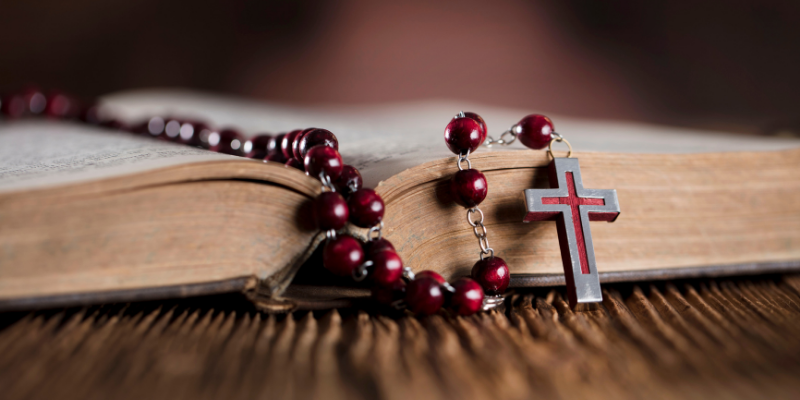It’s a question I’m asked regularly. Should I read the Apocrypha, and should it be included in the Bible?
Apocrypha is the name protestant Christians give to the seven additional books Roman Catholics include in the Bible. They also have certain additions to Esther and Daniel. Roman Catholics refer to these as deuterocanonical books.
The Catholic Case (1)
The Roman Catholic Church maintains that it has the authority to determine the limits of Scripture. It also asserts that there was no fixed canon of Scripture at the time of Jesus and His apostles. Some argue that there were competing canons, while others say that the Old Testament canon had not been entirely accepted in Jesus’ day. Whatever the case may be, the canon of Scripture was not fixed or established. This is quite true.
135 CE was the date the written Tanakh (Old Testament) was sealed. In other words, those who made decisions about sacred text decided it was complete by then. That’s a century after Jesus’ resurrection! Jewish scholars did not include the Apocrypha as a holy text.
The Bible Jesus Used
The Septuagint was the most widely read Scriptures of Jesus’ day and was likely the Bible he read, studied, and taught. The Septuagint (LXX) is the Greek translation of the Hebrew Scriptures completed by 72 Jewish scholars in the 3rd century BCE. The Septuagint did include the Apocrypha, and so Jesus and the early church would have been well acquainted with it.
The church, from the beginning, did not accept the shorter Jewish canon but instead included the deuterocanonical books or the Books of the Old Testament Apocrypha as Scripture.
The church fathers quoted from the Apocrypha but disagreed on its status. Augustine, for example, considered the Apocrypha as canonical (official Scripture). On the other hand, Jerome viewed it as ecclesiastical, to be read in church for edification but not on par with inspired Scripture.
Protestant Reformation
Martin Luther supported Jerome’s view. He wrote, “These are books that, though not esteemed like the Holy Scriptures, are still both useful and good to read.” Luther included the deuterocanonical books in his translation of the German Bible, but he did relocate them to after the Old Testament, calling them “Apocrypha” or “Hidden books.”
Incidentally, Luther attempted to take Hebrews, James, Jude, and Revelation out of the Bible because they didn’t fit with his teaching of being saved by faith alone without works. He placed these four books at the end of his German Bible translation as a kind of New Testament Apocrypha.
The Apocrypha was included in the 1611 publication of the King James Bible. It was officially removed from the English printings of the King James Version by the Archbishop of Canterbury in 1885, leaving only 66 books. In other words, these books have only been absent from non-Roman Catholic Bibles for the last 136 years.
The Catholic case (2)
The Roman Catholic church claims that when the books of the Old Testament Apocrypha are rightly studied and understood, they fit into a consistent pattern of teaching with the rest of the Bible and the teachings of the church. Therefore, they consider that we have every good reason to receive these works as canonical Scripture and to believe and obey the things taught therein.
But the New Testament Doesn’t Quote It!
Some state that Jesus and the New Testament authors do not quote from these books. But that’s not correct. While the New Testament doesn’t state, “It is written…” before quoting from the Apocrypha, there are dozens of instances where Jesus and the New Testament draw on Apocrypha. The golden rule (Matthew 7:12; cf. Tobit 4:15). Warnings against storing up riches (Matthew 6:19-20; James 5:3; cf. Sirach 29:10-11). The New Testament continues the strong theme of almsgiving (giving to help the poor) that we find in the Apocrypha. Consider Acts 3:3; 9:36; 10:2-4, 31; 24:17; 1 John 3:17 and Tobit 1:16; 2:14; 4:7-8, 10-11, 16; 12:8.
One of the clearest quotations is found in Jude’s little letter. Jude 14-15, “It was also about these that Enoch, in the seventh generation from Adam, prophesied, saying, “See, the Lord is coming with ten thousands of his holy ones, to execute judgment on all, and to convict everyone of all the deeds of ungodliness that they have committed in such an ungodly way, and of all the harsh things that ungodly sinners have spoken against him.”
The Apocryphal book of 1 Enoch states, “Behold, he comes with the myriads of his holy ones, to execute judgment on all, and to destroy all the wicked, and to convict all flesh for all the wicked deeds that they have done, and the proud and hard words that wicked sinners spoke against him” (1:9).
Concluding Thoughts
I haven’t read all of the apocryphal books, but maybe I should. I find myself agreeing with Jerome and Luther that “These are books that, though not esteemed like the Holy Scriptures, are still both useful and good to read.”
While part of me thinks we already have enough to read and study with the 66 books of the Bible, the fact that they were included in the Christian Bible for the first 1,855 years of the church’s existence seems to lend weight to the Apocrypha.
So, read them if you want to, but make up your mind to never fall out or argue about this with anyone!




